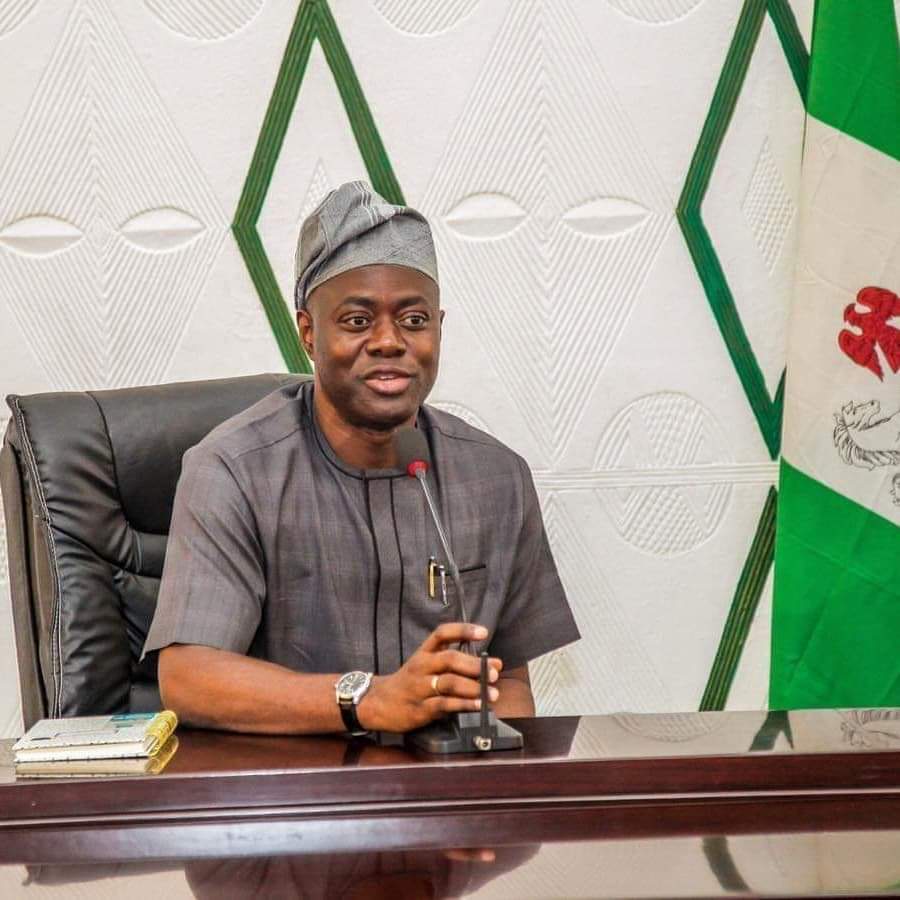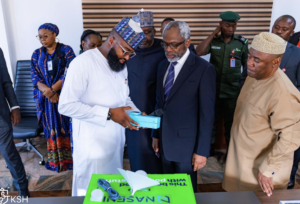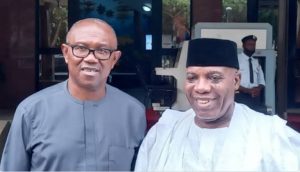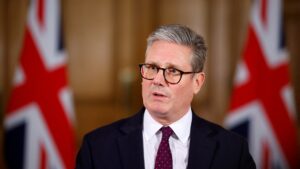
Governor Seyi Makinde of Oyo State has reiterated his belief in increasing the State Internally Generated Revenue (IGR), without necessarily raising tax, to cover the State’s recurrent expenditure before the expiration of the current administration.
This is as he also vowed to work with relevant stakeholders to put in place taxation laws that would facilitate economic prosperity in the State.
Makinde said his newly introduced Roadmap for Accelerated Development, targeted at increasing the revenue generation for the State, yielded results as the State IGR rose from about N2billion in November to N2.7billion in December, 2019.
The Governor made the disclosure while speaking at the Oyo State Tax Stakeholders Summit, themed: “Poverty to Prosperity Summit”, held at the Professor Theophillus Ogunlesi Hall, Opposite the University College Hospital, UCH, Ibadan.
Unveiling what he tagged: “IGR Roadmap and Economic Prosperity of Oyo State, 2019-2023”, Makinde reiterated that the plans to increase the revenue generated in the State without an increase in taxes, as stated in the Roadmap for Accelerated Development in Oyo State 2019-2023, stand on four legs.
He listed the four to be: “A thorough review of the current IGR process and management in the State, expanding the tax net, looking for new sources of revenue and being aggressive and innovative in the mode of revenue collection by having the State Board of Internal Revenue Service working in collaboration with seasoned professionals.”
Makinde said, “The issue of Internally Generated Revenue (IGR) is very important as it is tied to how much development the State will experience, all things being equal. Without adequate revenue, there will be no resources to fund the Budget; the State will have to resort to borrowing for recurrent expenditure or owing for overheads, which is never ideal.”
Revealing the fluctuating nature of Oyo State’s IGR, he said in 2014 it was N16.30bn, but dropped to N15.66bn in 2015, later increasing to N18.88bn in 2016. For 2017, the IGR figures grew to N22.45bn. While in 2018, it grew to N24.67bn, putting the IGR per capita in 2018 at below N3,000 per person.
He disclosed that the current trend across states in Nigeria is to see IGR as being synonymous with revenue generated from taxes, partly because other sources of revenue, especially natural resources, are on the exclusive list.
Makinde stated that the revenue generated from the natural resources goes to the Federation Account and is then shared between the Federal Government and states adding that a lot has been said about how it has served as a hindrance to development, and how it has made states unwilling to invest in the management of the resources.
The Governor declared, “We have been able to plug some holes in the system and this is yielding results. We have also employed new managers of the revenue collection process. Their mandate is to come up with innovative and aggressive ways of getting the untaxed to contribute to the development of the State.”
He revealed that a land administration solution that would ensure wider and more effective enumeration of all business and household property, ensure ease of obtaining land titles and other documents and faster approval of building plans, is being put in place, adding that the land use charge has been fine-tuned and would be responsibly applied.
Makinde stated, “We have taken a second look at our vehicle registration and renewal system and by the end of this month, the public can expect a wider, better and faster platform which will be available in all our 34 tax stations. We will continually apply fair and harmonized billings to other rates and levies.”
Noting that in economic circles, citizens are more inclined to respond positively and even volunteer to pay their taxes when they see how tax payments are being put in use, the Governor gladly reported that the taxes paid by Oyo State citizens are currently being ploughed back into the development of the State.
He said, “You may be aware of the work being done by the Oyo State Road Maintenance Agency (OYSROMA); we are rehabilitating roads in Ibadan and will move outside Ibadan to other cities before the end of this quarter.”
Delivering the Lead Paper entitled: “Tax Stakeholders, Good Governance and Poverty to Prosperity Agenda“, a Professor of Taxation and Fiscal Matters, University of Lagos, Abiola Sanni, harped on the need for government to give assent to tax bills and work out legal framework for effective implementation.
While making recommendations for the State, Professor Sanni called for immediate tax reforms, whistle blowing policy to curb tax evasion and continuous tax education, amongst other things, adding that lack of consistency and sufficient investment on tax administration has affected the State taxation drive.
Earlier, in his welcome address, the Commissioner for Finance, Mr Akinola Ojo, explained that the summit would not only focus on generating revenue but also enhance development in the State.
Goodwill messages were taken from the Olubadan of Ibadan, Oba Saliu Adetunji, who was represented by Chief Lekan Alabi; Executive Chairman, Federal Inland Revenue Service, Mohammed Nami; Executive Secretary, Joint Tax Board, Abuja, Mohammed Abubakar and Madam Betiku Oluwayemisi, representative of traders associations, amongst others.
The Summit was attended by traditional rulers, community leaders, tax experts, traders and market men and women, among other participants







